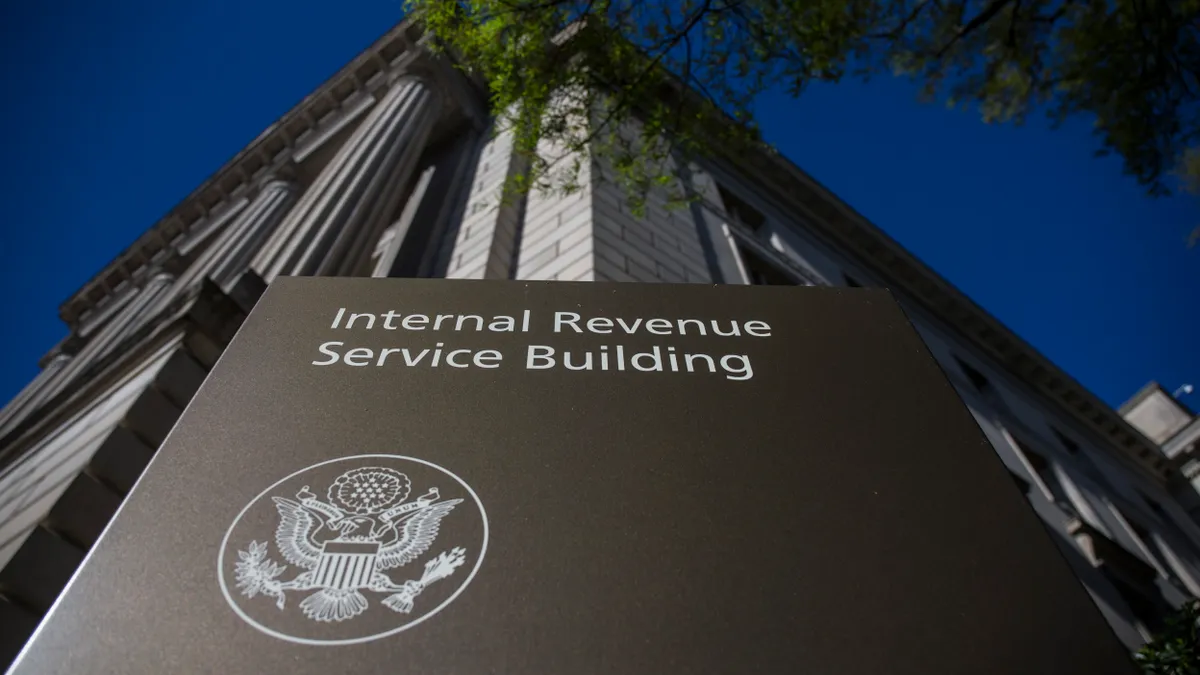Dive Brief:
- The Internal Revenue Service failed to meet a January deadline under the Taxpayer First Act for online processing of requests for business tax transcripts, the Treasury Inspector General for Tax Administration said in a report. The transcripts are often a key part of a company’s loan application.
- “The IRS did not have the capability to process business transcript requests by January 2023,” TIGTA said, adding that the agency “has not yet made a decision to require participants to use the new system.” Without such a mandate, “enhanced controls will be needed for electronically faxed transcript requests to ensure that transcripts are not issued to unauthorized individuals.”
- The Taxpayer First Act of 2019 required the IRS to upgrade its technology to improve customer service, ensure data security and streamline operations. Nevertheless, the IRS took as many as 22 days to provide a tax transcript, far longer than its three-day goal, TIGTA said.
Dive Insight:
TIGTA released the report soon after the March 13 swearing in of Daniel Werfel as IRS Commissioner.
Werfel, who served as Acting IRS Commissioner in 2013, takes over a sprawling bureaucracy that, according to the Government Accountability Office, relies on technology six decades old for critical, day-to-day tasks, putting the security of its operations at risk.
One out of three software applications used by the IRS range from 25 to 64 years in age, with software as many as 15 versions behind the current version, the GAO said in a report released last month. The “IRS has acknowledged these legacy assets will continue to contribute to security risks, unmet mission needs, staffing issues and increased costs.”
Reductions in the IRS budget have thwarted its efforts to improve technology, according to Democratic lawmakers. Appropriations to the IRS last decade declined by more than 15% and its workforce was cut 20%, former Treasury Secretary Lawrence Summers said in an NBER paper published in 2020.
Under a Biden administration plan approved by Congress last year, the IRS is set to receive $80 billion during the next 10 years for several improvements, including upgrading technology and bolstering taxpayer services.
The spending has come under fire by Republicans in both the Senate and House of Representatives. In its first vote this year under Republican control, the House in January voted to claw back $71 billion of the new funding earmarked for tougher enforcement.
Werfel, a former controller at the Office of Management and Budget, has accepted a GAO recommendation that the IRS upgrade its technology. He has set three “top modernization priorities,” including updating the Business Master File and Individual Master File that include data on tax accounts using technology dating to 1970.
The IRS will digitize paper forms into machine-readable formats to reduce a backlog of unprocessed returns, Werfel said last month in reply to questions from members of the Senate Finance Committee.
The agency will also weave innovative technology into “IRS service work — whether on the phone or online — to help significantly increase responsiveness to taxpayers trying to make contact with the IRS,” Werfel said.
TIGTA found several weaknesses in IRS efforts to improve its tax transcript system. For example, no single office was responsible for resolving failures in a new inventory management system.
Also, the IRS processes tax transcript requests for individual taxpayers even though they have been flagged as victims of identity theft, TIGTA said. “There is a risk of unauthorized disclosure of taxpayer information to unscrupulous individuals.”
The IRS plans to meet the business tax transcript requirements under the Taxpayer First Act by mid-2023, according to a Feb. 1 letter to TIGTA from Kenneth Corbin, commissioner of the agency’s Wage and Investment Division.














